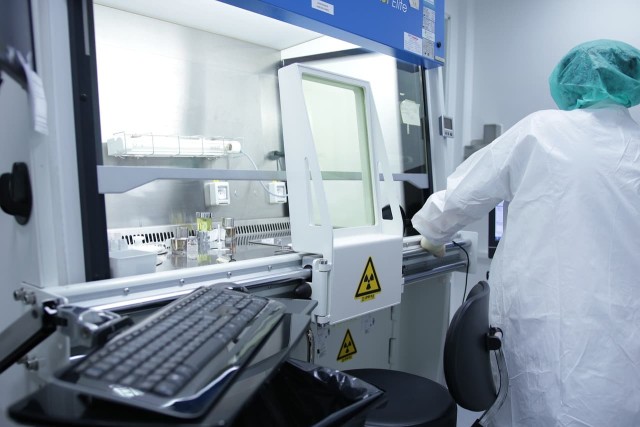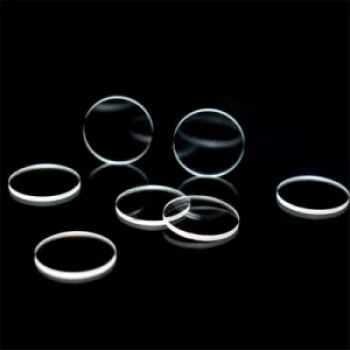Good Laboratory Practice (GLP) is a set of principles that provide a framework for the organization and conduct of non-clinical laboratory studies.
These principles are designed to ensure the quality, integrity, and reliability of data generated from laboratory studies and to protect the health and safety of laboratory workers and test subjects.
Adhering to GLP principles is important for the quality and integrity of scientific research, as it helps to ensure that the results of laboratory studies can be trusted and relied upon by regulatory agencies and industry organizations when making decisions about the safety and effectiveness of products or processes.
In this article, we will explore the fundamentals of GLP and how it applies to laboratory settings.
Mean of Good Laboratory Practice
Good Laboratory Practice (GLP) is a set of principles and guidelines that are designed to ensure the quality, integrity, and reliability of data generated from non-clinical laboratory studies.
These principles are put in place as a system of quality assurance to ensure that studies are conducted in a consistent, reproducible, and reliable manner.
GLP is not a set of protocols or rules, but rather a set of guidelines that are used to ensure that data is collected in a way that is reliable and consistent.
The concept of GLP originated in the United States with the Food and Drug Administration (FDA) in 1972 in response to safety concerns. Today, laboratories that make or test products such as food additives, biologicals, and medical devices are subject to the FDA's Code of Federal Regulations for GLP for Nonclinical Studies.
GLP is important because it helps to ensure the integrity and reliability of scientific research. When studies are conducted according to GLP principles, the results can be trusted and relied upon by regulatory agencies and industry organizations when making decisions about the safety and effectiveness of products or processes.
GLP covers
GLP covers resources, characterization, rules, results, and quality assurance. Let's take a closer look at each of these areas:
- Resources: In order to ensure that research is conducted properly, it is important to have qualified personnel and appropriate equipment. This includes defining the responsibilities of research staff, documenting their qualifications and training, and ensuring that equipment is in proper working order through a program of qualification, calibration, and maintenance.
- Characterization: Data regarding both the test item and the test system is important for understanding the conditions under which the study was conducted and for interpreting the results. This data should be thoroughly documented and accurately reflect the procedures and conditions of the study.
- Rules: Testing should follow protocols and written Standard Operating Procedures (SOPs) to ensure that results are repeatable. These protocols and SOPs should be clearly documented and followed during the course of the study.
- Results: Raw data reflecting the procedures and conditions of the study, as well as the final report, should be carefully documented and accurately reflect the results of the study. The final report should be provided to regulatory authorities and should include an account of how the study was performed, along with the scientific interpretation of the data.
- Quality Assurance: An independent Quality Assurance Unit (QAU) is responsible for monitoring and verifying that all studies are conducted in accordance with GLP principles. This independent team of personnel is responsible for assuring compliance with GLP standards and ensuring that the integrity of the research is maintained.
Benefits of Good Laboratory Practice
Data integrity
Data integrity is a critical aspect of scientific research, as it helps to ensure that the results of studies are reliable and trustworthy.
Good Laboratory Practice (GLP) is a set of principles that provide a framework for the organization and conduct of non-clinical laboratory studies, with the primary goal of ensuring data integrity.
By following GLP principles, researchers and manufacturers can ensure that data is collected and recorded in a consistent, reliable, and reproducible manner.
This helps to ensure that the results of studies are trustworthy and can be relied upon by regulatory agencies and industry organizations when making decisions about the safety and effectiveness of products or processes.
Other benefits
There are several benefits of Good Laboratory Practice (GLP) beyond data integrity, including:
- Ensuring the safety of laboratory workers and test subjects: GLP principles include guidelines for the handling and disposal of hazardous materials and for the training and qualifications of laboratory personnel. This helps to ensure that laboratory workers and test subjects are protected from harm.
- Enhancing the reliability and reproducibility of research: Adhering to GLP principles helps to ensure that research is conducted in a consistent and reliable manner, which enhances the reproducibility of results. This is important for building a solid foundation of knowledge and understanding in scientific research.
- Facilitating regulatory approval: GLP compliance is often required by regulatory agencies when evaluating the safety and effectiveness of products or processes. By following GLP principles, manufacturers and researchers can demonstrate that their studies have been conducted in a reliable and trustworthy manner, which may facilitate regulatory approval.
- Protecting against fraud: GLP principles include guidelines for record-keeping and documentation, which can help to prevent fraudulent activities and ensure the integrity of research.
Kindle Tech Equipment and GLP
Good Laboratory Practice (GLP) principles apply to lab equipment, including many of Kindle Tech's offerings, to ensure that the equipment is suitable for its intended use and is in proper working order.
This includes ensuring that the equipment is of adequate capacity for the tasks it is expected to perform and that it is appropriate for the intended use.
Standard Operating Procedures (SOPs) can help to determine the suitability of the equipment for a particular task.
In order to ensure compliance with GLP principles, it is important for laboratories to have documented policies and procedures in place for the maintenance and qualification of equipment.
This may include regular calibration, testing, and maintenance of equipment to ensure that it is in proper working order.
It is also important to have a designated Quality Assurance Unit (QAU) responsible for monitoring and verifying that all studies are conducted in accordance with GLP principles.
It is important for laboratories to ensure that all equipment is calibrated and properly maintained in order to ensure accuracy and reliability. This is particularly important for analytical equipment and balances, which are used to generate data. Calibrations should be performed using appropriate calibration weights, and records should be kept to track repairs and maintenance, including routine, preventative, curative, or other types of maintenance.
Adhering to Good Laboratory Practice (GLP) principles also requires proper record-keeping to ensure that equipment is within its operational lifetime or service intervals. This includes keeping track of repairs and maintenance and ensuring that equipment is in proper working order. Proper record-keeping is essential for ensuring the quality, integrity, and reliability of research and for protecting the health and safety of laboratory workers and test subjects.
Contact Us
Are you wondering how Good Laboratory Practice (GLP) principles apply to Kindle Tech's products? Do you have questions about compliance with GLP guidelines? Our team is here to help. Please don't hesitate to reach out to us by phone or email if you have any questions or need assistance with GLP compliance. We are committed to supporting you and your laboratory needs.
Related Products
- Laboratory Manual Hydraulic Pellet Press for Lab Use
- Optical Ultra-Clear Glass Sheet for Laboratory K9 B270 BK7
- High Temperature Resistant Optical Quartz Glass Sheet
- Manual Lab Heat Press
- Automatic Laboratory Hydraulic Pellet Press Machine for Lab Use
Related Articles
- Automatic Hydraulic Press: The Ultimate Guide for Efficient Sample Preparation and Industrial Processes
- Why Your Lab Pellets Crack: The Hidden Physics of a Perfect Press
- Understanding Hydraulic Pellet Press: Working Mechanism and Applications
- Manual Lab Hydraulic Pellet Press: Comprehensive Guide to High-Quality Pellet Preparation
- Operating of Automatic Lab xrf Pellet Press






